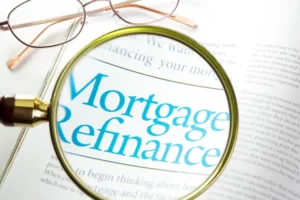The average person has limited knowledge of all aspects of a home that a certified home inspector goes through. The purchase of a home can already be a very costly venture and put a drain on your savings, it makes little sense to pay all of your money out then have to replace the furnace, or brace basement walls, or have to upgrade the plumbing/wiring, especially if you are not prepared for it.
A certified home inspector puts your potential new home through a rigorous inspection that can last as long as three hours. They literally inspect everything from the top of the roof to the basement floor, and everything in between. Significant deficiencies found by a certified home inspector gives you leverage in order to negotiate either the necessary repairs are completed by the seller prior to possession or that the relevant costs are deducted from the purchase price. This is a standard practice in real estate.
Who should you choose to do your inspection?
Like anything you can try and cut corners by getting a contractor to look over your purchase at less of a cost. There are two problems with this idea. Number one is that you run the risk that the contractor is not impartial. Remember if he is able to find a defect he stands a good chance of getting to repair it and get extra fees. A certified home inspector is free of any self-interest. Inspectors are prohibited to even give you a referral to someone to fix the problem much less fixes it themselves. This unbiased approach assures you have an honest determination of any potential problems. Secondly most contractors are only “specialists” in one area. Therefore you would have to bring out many different contractors to cover the same breadth that a professional certified inspector can.
Once you have been convinced to get a professional home inspection completed by a certified home inspector, the next question is… who? This is not always simple. We recommend talking to friends or family who recently purchased, or your real estate agent. Another great resource is the Canadian Association of Home Inspectors who has a membership list. Finally ensure that the inspector has a track record, preferably he works for or owns a major franchise, as the franchise companies generally have on going educational requirements. Also franchise inspectors generally have adequate insurance to cover any errors that they make. If they miss something you will have recourse to them and they have insurance to pay you. There are five key questions to ask a potential home inspector:
Are you a member of any professional associations, if possible get the contact numbers so that you can phone them to see if there have been any complaints about him.
Are you employed by the realtor handling the property in question? To remove all potential bias you should ALWAYS choose your own inspector. Some inspectors may be afraid to give an overly bad inspection about a bad house so as to not upset the realtor and lose potential referrals in the future.
Do you have professional errors & omissions insurance? If in doubt ask to see the policy, a good inspector would have it on him/her at all times.
What is your training? Most good inspectors have experience or degrees in civil engineering, or have obtained journeyman papers in a strong trade like carpentry, plumbing, or electrical.
What do you charge?
What tangible thing do you get for the fee?
All good inspectors have a very thorough binder that covers all areas of the home. Each area will have the inspector’s findings as well as advice as to a potential course of action and sometimes an estimate of the cost to repair. It is important to know that a home inspection is not a guarantee that things will not go wrong. No one has a crystal ball, however it is still better than going into the purchase totally blind.
Other Related Information
Recently Engaged Or Married & Looking To Buy?
Mortgage Purchase Advice
Best Mortgage Broker Vancouver Bc





